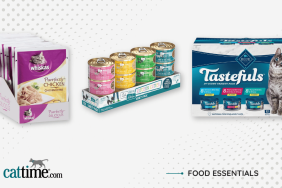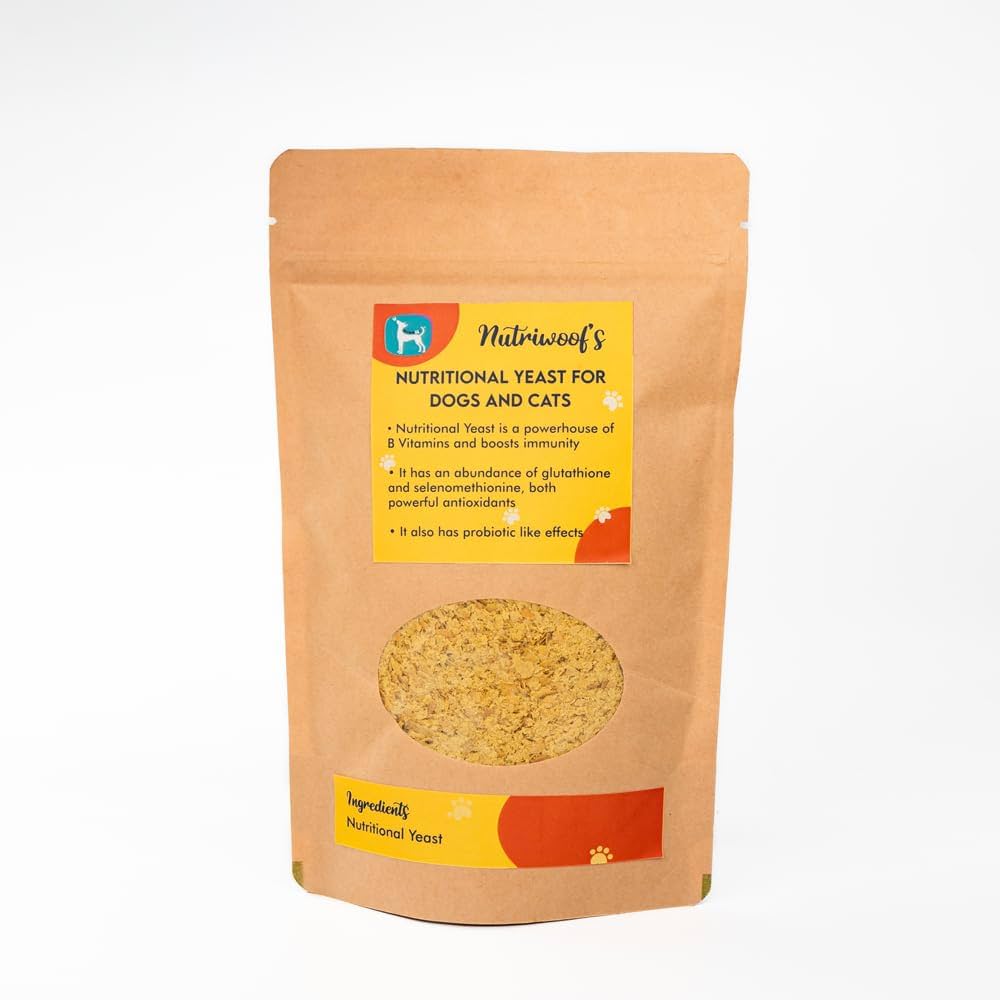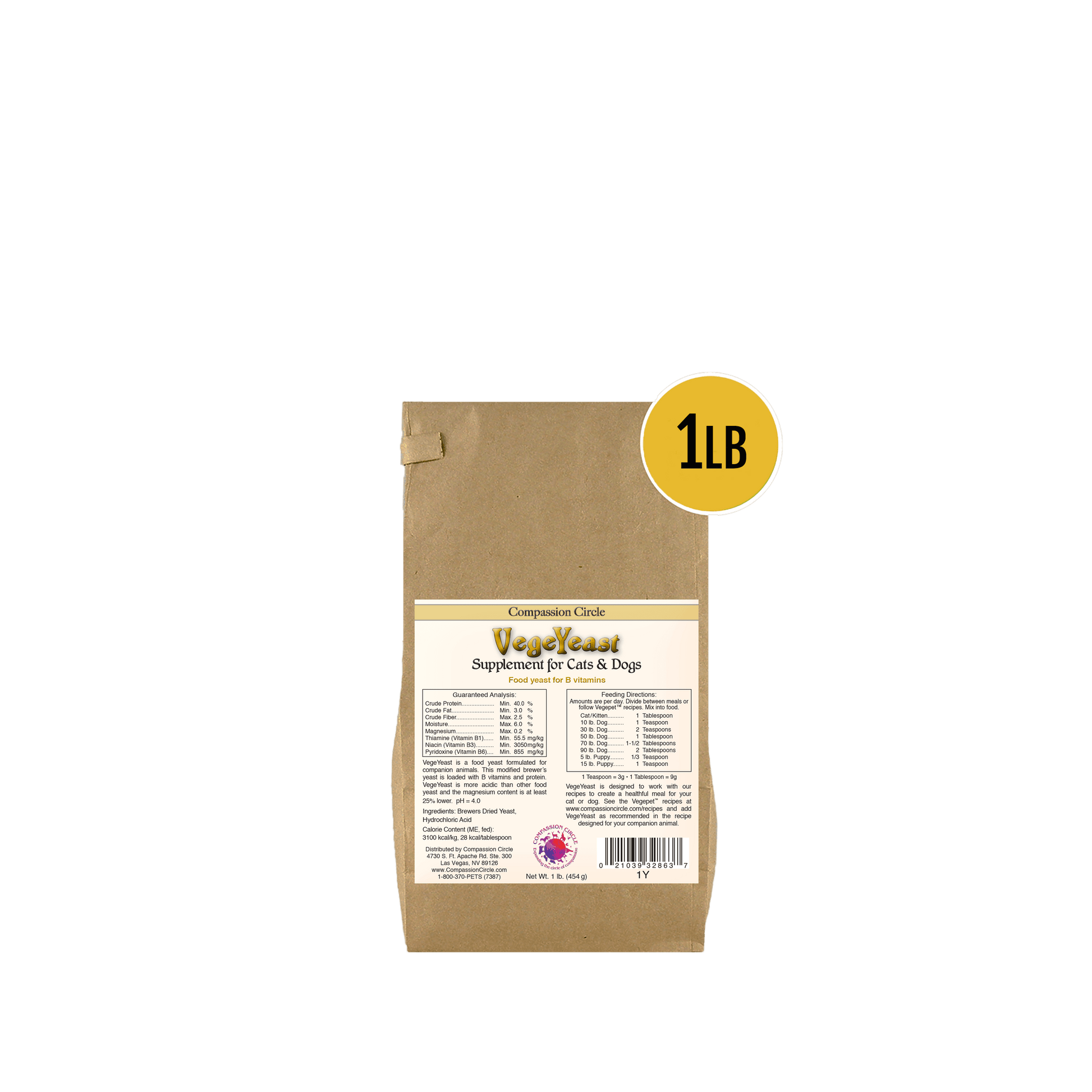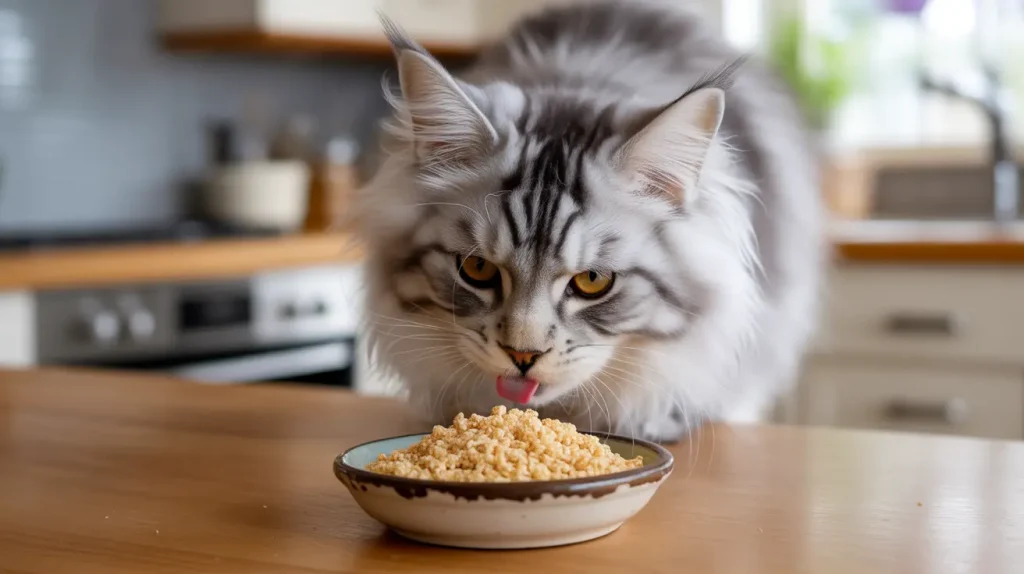Are you wondering if nutritional yeast is a safe and healthy treat for your cat? You want the best for your furry friend, and it’s natural to ask if this popular supplement could benefit them too.
Nutritional yeast is praised for its vitamins and flavor, but is it really good for your cat’s diet? Keep reading to find out what you need to know before adding nutritional yeast to your cat’s meals. Your pet’s health depends on it!

Credit: cattime.com
Nutritional Yeast Basics
Nutritional yeast is a popular food product made from yeast. It is grown on sugar-rich mediums like molasses. Then, it is harvested, washed, and dried with heat.
This yeast has a cheesy, nutty flavor. People use it to add taste and nutrients to their meals. It is rich in vitamins, especially B-complex vitamins.
What Is Nutritional Yeast?
Nutritional yeast is an inactive form of yeast. It cannot make bread rise. It is different from baker’s yeast and brewer’s yeast. It is safe to eat and has many nutrients.
- Yellow flakes or powder form
- Rich in protein and fiber
- Contains vitamins like B12 and folic acid
- Gluten-free and low in fat
- Used as a dietary supplement
Common Uses In Human Diets
People add nutritional yeast to many dishes. It can enhance flavor and nutrition. It is popular among vegans and vegetarians.
| Use | Description |
| Sprinkled on popcorn | Adds a cheesy taste without dairy |
| Mixed into sauces | Thickens and flavors vegan cheese sauces |
| Added to soups | Boosts vitamin content and taste |
| Used in salad dressings | Creates a savory flavor |
| Included in smoothies | Increases protein and nutrients |
Nutritional Value For Cats
Nutritional yeast is a popular supplement for humans. Some pet owners wonder if it is good for cats. Understanding its nutrients helps decide if cats can benefit from it.
This yeast is rich in vitamins and minerals. It is made from deactivated yeast cells. Cats have special dietary needs that differ from humans.
Key Nutrients In Nutritional Yeast
Nutritional yeast contains many nutrients. It is a good source of B vitamins. These vitamins support energy and nerve functions in cats.
This yeast also has protein and fiber. Protein helps build muscles and repair tissues. Fiber aids digestion but cats need only small amounts.
- Vitamin B1 (Thiamine) – supports metabolism
- Vitamin B2 (Riboflavin) – helps cell growth
- Vitamin B3 (Niacin) – assists digestion
- Vitamin B6 – important for brain health
- Protein – essential for muscle health
- Fiber – helps with digestion in small amounts
How Cats Process Nutritional Yeast
Cats are obligate carnivores. Their bodies are designed to eat meat. They digest animal proteins better than plant-based nutrients.
Cats can digest some nutrients in nutritional yeast. But too much can cause stomach upset. It is best to give it in small amounts if at all.
- Cats absorb B vitamins from yeast well
- Protein in yeast is less ideal than meat protein
- Excess fiber may cause digestive issues
- Yeast should not replace regular cat food
Potential Benefits For Cats
Nutritional yeast is a popular supplement for pets. It contains vitamins and minerals that might help cats stay healthy.
This natural ingredient adds nutrients that support various body functions in cats. It can be a good addition to their diet in small amounts.
Boosting Immune Health
Nutritional yeast has beta-glucans that can support a cat’s immune system. These compounds help fight infections and keep cats feeling well.
Giving cats small doses may improve their natural defense against illnesses. It helps the immune cells work better to protect the body.
Enhancing Coat Quality
Vitamins like B-complex in nutritional yeast help improve the coat’s shine and softness. Cats with healthy coats often look more vibrant.
Regular use can reduce dryness and flakiness. This supplement supports skin health, which is important for a nice fur texture.
Supporting Digestion
Nutritional yeast contains fiber that helps with digestion. It can support good gut bacteria and help cats digest food better.
This benefit may reduce digestive upset like gas or constipation. A healthy digestive system helps cats absorb nutrients well.

Credit: www.amazon.in
Possible Risks And Side Effects
Nutritional yeast is sometimes given to cats as a supplement. It contains vitamins and protein. Still, it can cause some risks and side effects in cats.
Understanding these risks helps keep your cat safe. Watch for any signs that your cat may not tolerate nutritional yeast well.
Allergic Reactions
Some cats may be allergic to nutritional yeast. Allergic reactions can cause itching, redness, or swelling of the skin.
In rare cases, cats might have trouble breathing or develop hives. Stop feeding nutritional yeast if you see these signs.
- Itching or scratching
- Red or swollen skin
- Hives or bumps
- Difficulty breathing (emergency)
Digestive Upset
Nutritional yeast can upset a cat’s stomach. Some cats may vomit or have diarrhea after eating it.
Too much nutritional yeast may cause gas or bloating. Start with very small amounts if you want to try it.
- Vomiting
- Diarrhea
- Gas and bloating
- Loss of appetite
Interactions With Cat Medications
Nutritional yeast may affect some medicines your cat takes. It can change how drugs work in the body.
Tell your vet if your cat eats nutritional yeast. They can check for possible problems with your cat’s medications.
- May reduce effectiveness of some drugs
- Can increase side effects of medications
- Consult your vet before use
Safe Ways To Feed Nutritional Yeast
Nutritional yeast can be a healthy supplement for cats if given correctly. It adds vitamins and minerals to their diet.
Feeding nutritional yeast safely requires understanding the right amounts and choosing good products. Always check with your vet first.
Recommended Dosages
Start with small amounts to see how your cat reacts. Too much can cause stomach upset or allergic reactions.
- Begin with 1/4 teaspoon per day for small cats.
- Increase to 1/2 teaspoon if no problems appear.
- Do not exceed 1 teaspoon daily for large cats.
- Use nutritional yeast only a few times per week.
Choosing Quality Products
Select nutritional yeast made for human consumption. Avoid products with added salt, sugar, or artificial flavors.
| Feature | What to Look For | What to Avoid |
| Source | Organic, Non-GMO | Unknown or cheap brands |
| Additives | None or natural only | Added salt, sugar, or chemicals |
| Packaging | Sealed and fresh | Expired or open containers |
Consulting Your Veterinarian
Your vet can advise if nutritional yeast fits your cat’s health needs. Some cats may have allergies or conditions that make it unsafe.
- Ask about possible drug interactions.
- Check if your cat needs vitamin supplements.
- Report any side effects after feeding.
Alternatives To Nutritional Yeast For Cats
Nutritional yeast is often used to support a cat’s diet with extra vitamins and minerals. Some cats may not tolerate it well or owners may want other options. There are several alternatives that provide similar nutrient benefits.
This guide covers other supplements and natural foods that can help keep your cat healthy without nutritional yeast.
Other Supplements For Nutrient Support
Certain supplements offer essential nutrients like B vitamins and protein for cats. They may serve as good alternatives to nutritional yeast. Always check with a vet before adding supplements.
- Fish oil capsules for omega-3 fatty acids
- Brewer’s yeast for B vitamins and protein
- Cat-specific multivitamin tablets
- Powdered kelp for minerals and trace elements
- Egg yolk powder as a natural protein source
Natural Food Sources
Whole foods can provide many nutrients your cat needs. These natural options may improve diet variety and health.
| Food | Key Nutrients | Notes |
| Cooked chicken | Protein, B vitamins | Low fat, no seasoning |
| Cooked salmon | Omega-3 fatty acids, protein | Good for skin and coat |
| Eggs | Protein, vitamins A and D | Feed cooked, no raw eggs |
| Pumpkin | Fiber, vitamins A and C | Supports digestion |
| Spinach | Iron, vitamins K and A | Use sparingly, avoid if kidney issues |

Credit: vecado.com
Frequently Asked Questions
Is Nutritional Yeast Safe For Cats To Eat?
Nutritional yeast is generally safe for cats in small amounts. It provides B vitamins but should not replace their balanced diet. Always introduce it gradually and monitor for allergies or digestive issues.
Can Nutritional Yeast Improve My Cat’s Coat?
Yes, nutritional yeast contains B vitamins that may help improve your cat’s coat shine. However, it should complement a proper diet, not replace essential nutrients from cat food.
How Much Nutritional Yeast Can I Give My Cat?
Limit nutritional yeast to a small pinch occasionally. Too much can cause digestive upset or allergic reactions. Consult your vet before adding it regularly to your cat’s diet.
Does Nutritional Yeast Provide Essential Nutrients For Cats?
Nutritional yeast offers B vitamins and protein but lacks taurine, vital for cats. It’s a supplement, not a complete nutrient source, so don’t rely on it solely.
Conclusion
Nutritional yeast can benefit cats in moderation. It offers vitamins and proteins. Cats usually enjoy its taste. Always consult a vet before adding it to their diet. Monitor your cat’s reaction. Some may have allergies or sensitivities. Nutritional yeast isn’t a complete food.
It should complement a balanced diet. Keep portions small to prevent any issues. Ensure your cat remains healthy and happy. Responsible feeding is key. Always prioritize your pet’s well-being. Your cat deserves the best care.
